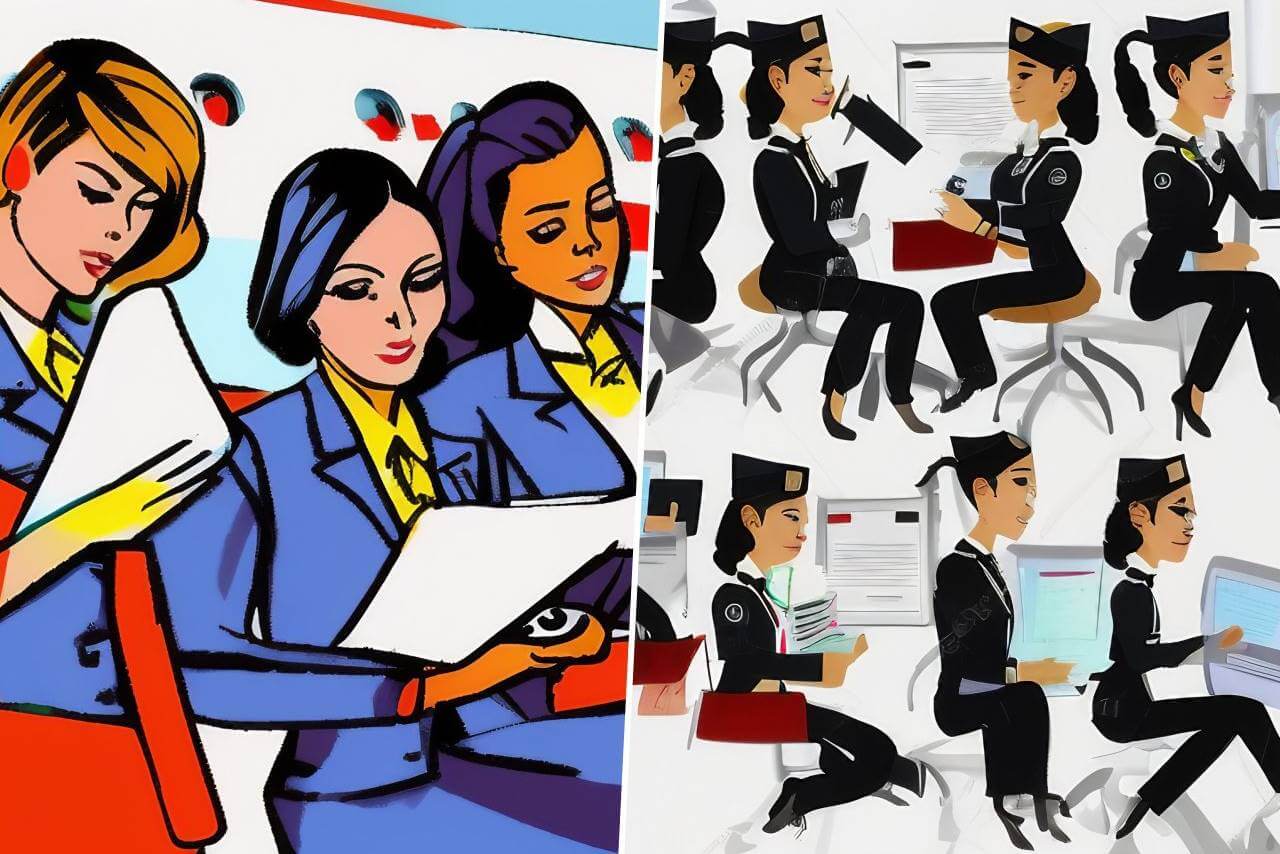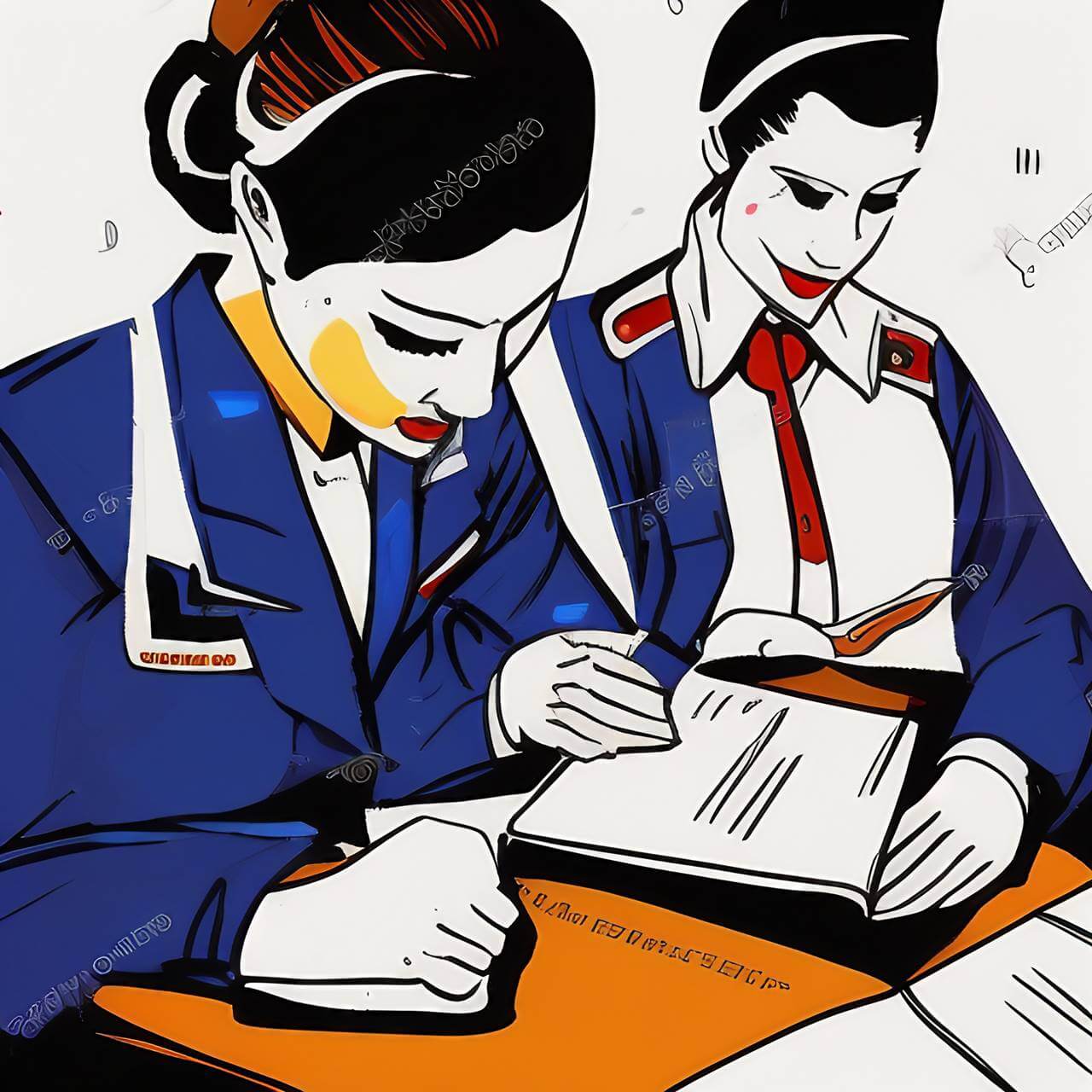With the growing demand for air travel, aviation companies seek to expand their fleet, destinations and network which will all require more employees to hire from aircraft engineers, trainers, ground as well as inflight personnel, etc. Due to the attractive benefit of travelling while working, becoming a flight attendant has been such as sought after job that certain airlines can receive thousands of applications daily.
Also Read: A Day in the Life of a Flight Attendant
How do you stand out in this crowd of applicants? The flight attendant job requires certain skill sets which you’ll be trained for once you’re hired. However, having prior knowledge, training, background or certification can definitely boost your chances of getting hired. Below are courses you can take to become a flight attendant:
Contents

1. Aviation Safety And Security
It’s a great idea to start with the International Civil Aviation Organization (ICAO) Aviation Security Training Program, which is designed to provide comprehensive training on aviation security measures. Other recommended courses include those specifically focused on emergency procedures and crisis management, aircraft evacuation techniques, and passenger handling. As a flight attendant, you should prepare yourself for unexpected situations that require quick thinking and clear communication with passengers and crew members. By continuously improving your safety and security skills through professional training courses, you will add valuable expertise to your career as a flight attendant.
2. Aviation Meteorology
Those interested in becoming flight attendants may not think about the importance of meteorology, but it plays a critical role in aviation. This is why many airlines require their crew members to receive training in Aviation Meteorology.
In this course, students will learn about weather phenomena that could affect flights and how to interpret weather data and forecasts. They will also gain an understanding of delayed or diverted flights, what types of In-Flight Weather Advisories exist and what actions can be taken to stay safe during severe weather events. While Aviation Meteorology may not be required for all flight attendants, taking this course can give them a competitive edge and provide valuable knowledge for ensuring safe flights.
Furthermore, having meteorology training can open up opportunities for advancement within the airline industry. Though it may seem like an added step in the journey toward becoming a flight attendant, investing in Aviation Meteorology training is worth considering for any aspiring crew member.
3. Airline Ticketing
Becoming a flight attendant requires a certain set of skills, including customer service and emergency response training. In addition to these skills, it is also important to have a basic understanding of the airline industry and how ticketing works. That’s where an airline ticketing course can come in handy.
These courses cover everything from fare rules to reservation systems, giving you the knowledge necessary to work with airlines and properly book flights for passengers. So if you’re considering a career as a flight attendant, consider taking an airline ticketing course to give yourself an edge in the industry.
Not only will it broaden your skill set, but it will also show potential employers that you are dedicated to learning all aspects of the job. Overall, investing in an airline ticketing course is a worthwhile endeavor for those hoping to work in the field of aviation.
Also Read: How Much Do Airline Ticket Agents Make?

4. Passenger Service
If you are interested in becoming a flight attendant, first, it is important to have a strong understanding of passenger safety and security procedures. Taking courses on emergency response and first aid can provide the knowledge necessary to handle unpredictable situations on flights.
Additionally, it is helpful to have customer service skills and understand how to handle difficult passengers or conflicts. Taking a course on hospitality or conflict resolution can prepare you for these scenarios. It is also important to have a general understanding of finance, as flight attendants often help with onboard purchases and maintaining inventories of food and other onboard items.
Overall, familiarizing oneself with the many different aspects of the job is crucial for success as a flight attendant. Keeping these courses in mind as you pursue your career can set you up for success in the skies.
Also Read: Customer Service Jobs You can Use as a Stepping Stone to become a Cabin Crew
5. Flight Operations
Becoming a flight attendant requires completing certain training courses, including a flight operations course. This course teaches the practical skills necessary for operating onboard an airplane, such as conducting safety checks and emergency procedures. It also covers important topics like aircraft weight and balance calculation and aviation regulations. While completing this course is mandatory for becoming a flight attendant, it is also valuable for other positions within the airline industry, such as pilots or airport customer service agents.
If you want to start a career in aviation, consider enrolling in a flight operations course to gain the skills needed to succeed in the industry.
6. First Aid
Becoming a flight attendant requires a certain level of medical training and knowledge. You may need to provide first aid in the event of an emergency. Taking a first aid course can greatly increase your chances of success in airlines. It also prepare you for the potential medical situations you may encounter on the job.
Many community colleges and hospitals offer basic first aid courses, where you can learn everything from CPR and AED use to treating burns and fractures. Some airlines also offer their in-house training programs or partner with organizations to provide specialized training. Regardless of what route you choose, make sure to keep your certification current and consider taking advanced courses. These courses include as Wilderness First Aid or Emergency Medical Technician training.
Being prepared for medical emergencies can not only help save lives but also set you apart as a highly qualified applicant for flight attendant positions.
Also Read: Flight Attendant Training: What to Expect

Summary
To become a flight attendant, you will need to complete certain courses, including the subjects of safety and emergency, flight operations, security and first aid. These courses will not only prepare you for your role as a flight attendant but can also be crucial in emergencies. Keeping these courses in mind as you pursue your career can set you up for success in the skies.